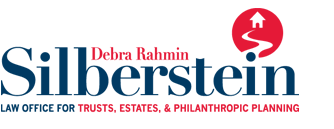In Morse v. Kraft¸ the Massachusetts Supreme Judicial Court held that Richard Morse, the sole trustee of the Kraft Family Irrevocable Trust (the “1982 Trust”), had the power to transfer, or “decant”, the assets of one irrevocable trust to another.
The 1982 Trust created separate sub-trusts for each of the settlor’s children, and each child was an income beneficiary of such sub-trusts. However, despite the fact that Morse believed the children were capable of managing the management and distribution of the funds held in their respective sub-trusts, the terms of the 1982 Trust forbade any interested beneficiary from exercising control over distributions.
Believing it to be in the beneficiary’s best interest, Morse wanted to transfer the assets of each sub-trust to a new 2012 Trust, retaining the same beneficiaries, but allowing each child to manage and distribute their own trust assets. Because the power to decant was not explicitly authorized in the 1982 Trust, Morse sought the Court’s interpretation of the Trust to determine whether it included the power to decant.
Although the Court noted granting the decanting powers would essentially allow the Trustee to “amend an unamendable Trust,” the SJC held that the decanting power was inherent in the terms of the 1982 Trust. Citing the Trust’s broad, discretionary language, which limited the Trustee’s power only in that his distributions must be “for the benefit of” the beneficiaries, and affidavits from the settlor and the drafting attorney, which stated that it was the settlor’s intent to give the Trustee decanting power, the Court held that the terms of the 1982 Trust authorized distributions to new sub-trusts.
The Court declined, however, to adopt the proposal of the Boston Bar Association, which, in an amicus brief, encouraged the court to recognize an inherent default power of trustees of irrevocable trusts to distribute property in further trust unless otherwise restricted by the terms of the Trust. Citing a recent trend of state legislatures to adopt trust decanting statutes, the Court reserved for the legislature the judgment of whether to recognize such a default power.
Further, the Court explicitly put drafting attorneys on notice that if a future settlor intends to give a Trustee decanting power, it is expected that the power will be explicitly granted by the Trust. Although the Court declined to answer the question of whether omitting the decanting power suggests intent to preclude decanting, it stated that “in light of the increased awareness, and indeed practice, of decanting, we expect that settlors in the future who wish to give trustees a decanting power will do so expressly.”
Estate Planning Implications
Therefore, trust settlors who wish to give trustees the flexibility – consistent with their fiduciary obligations – to decant trust assets into further trusts, should ensure that their trust instrument explicitly grants the trustee such powers.
Likewise, grantors who may be wary of Trustees altering the terms of a trust by decanting trust assets into further trusts without specific limitations on distributions or investments, for example, may wish to explicitly preclude the Trustee from decanting.
Revocable trusts may be amended at any time during the grantor’s life to accomplish the above changes, and under the Massachusetts Uniform Trust Code (“MUTC”), unless a trust expressly states that it is irrevocable it is interpreted as being revocable.
The MUTC also provides flexibility for the trustees of irrevocable trusts. Unless otherwise provided in the terms of the trust, irrevocable non-charitable trusts may be amended upon the consent of all beneficiaries and the settlor, with the approval of the court. As such, should a court construe the terms of an irrevocable trust to preclude decanting powers, the beneficiaries and the settlor may be able to modify the terms of the trust, provided that they all agree. Further, if the settlor does not consent, the beneficiaries may be able to modify the terms of the trust if the court concludes that modification is not inconsistent with a material purpose of the trust.
Such an option may have been available to Morse, had the SJC decided that the 1986 Trust precluded the decanting of trust assets, however there were potential triggers to the generation-skipping transfer tax (“GST”).





